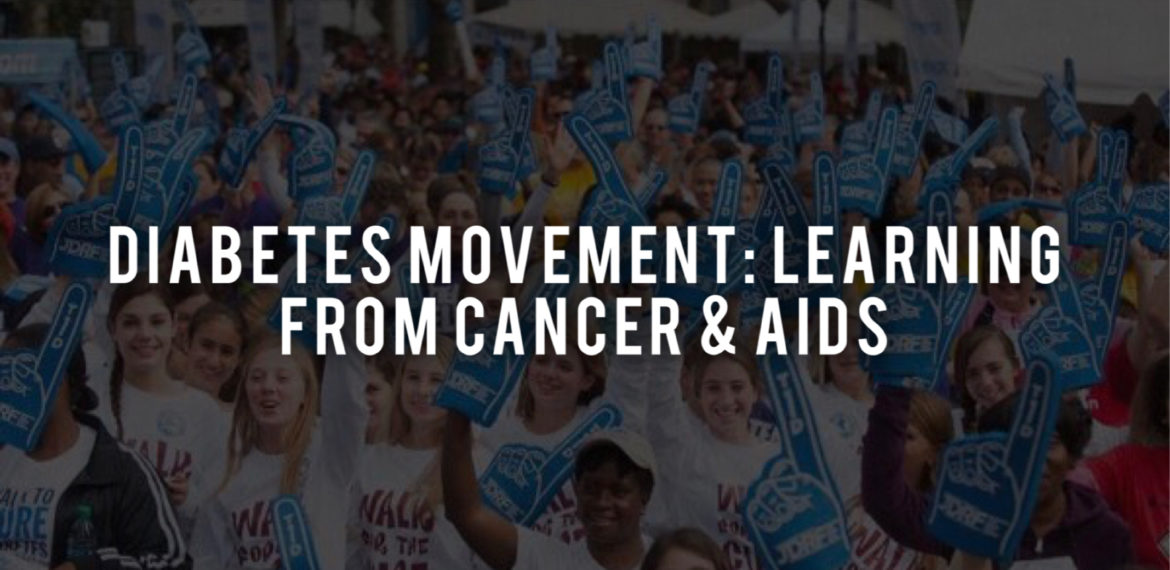2 Things People With Type 1 Diabetes Can Learn From The Cancer & AIDS Community
Cancer is scary. Diabetes is scary. Chronic illness in general is scary. But each condition holds a different social connotation which is why Cancer & AIDS receive more funding, research, and general support from the government and the media than diabetes.
Diabetes is such a large, yet largely ignored, problem that it is almost difficult to comprehend. For that reason, here is some perspective, comparing AIDS, Diabetes, and Breast Cancer:

There are 29 million diagnosed cases of some type of diabetes in the USA. A speculated 79 million people are living with undiagnosed diabetes or prediabetes. If that doesn’t get your attention, the cost associated with diabetes will.
While the American Cancer Society estimated costs of all cancers annual amounts to $201 billion, diabetes takes the cake (low-carb of course) with a staggering $245 billion annual impact. Not only are these costs associated with inhumanely astronomical health care prices of managing the chronic condition daily, the health care cost of diabetes is skyrocketing because of untreated diabetes.
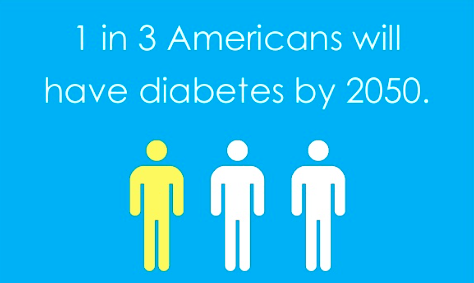
Yet, you can hear a pin drop when it comes to diabetes advocacy in American (and most other countries) culture. Why is it that so much of the awareness, media attention, fundraising, and community support is mostly going to other justifiable causes like Cancer and AIDS but not diabetes? Is diabetes not that deadly? Clearly it is killing at a higher rate. Is diabetes not a big financial problem? Clearly it is bankrupting patients and the healthcare system.
So why is diabetes not in the limelight as it should be?
Education
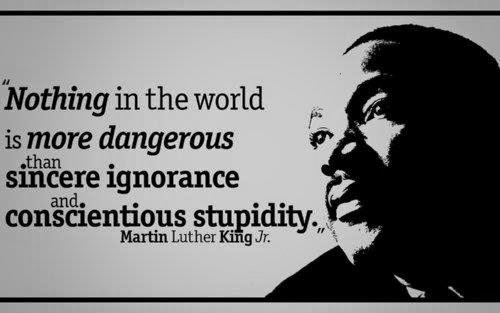
Cancer is widely talked about and publicized with very “in your face” advocacy. But it wasn’t always like that.
Before the 1970’s, breast cancer was much like diabetes— a private disease that demanded no publicity. It was a hidden disease until a few of these private experiences were made public by prominent, highly visible women via national television which promoted discussion of what cancer is, how to get checked for it and how to deal with it. A few activists who refused to let their voice go unheard paved the way for support groups and mass education.
Diabetes Stigma
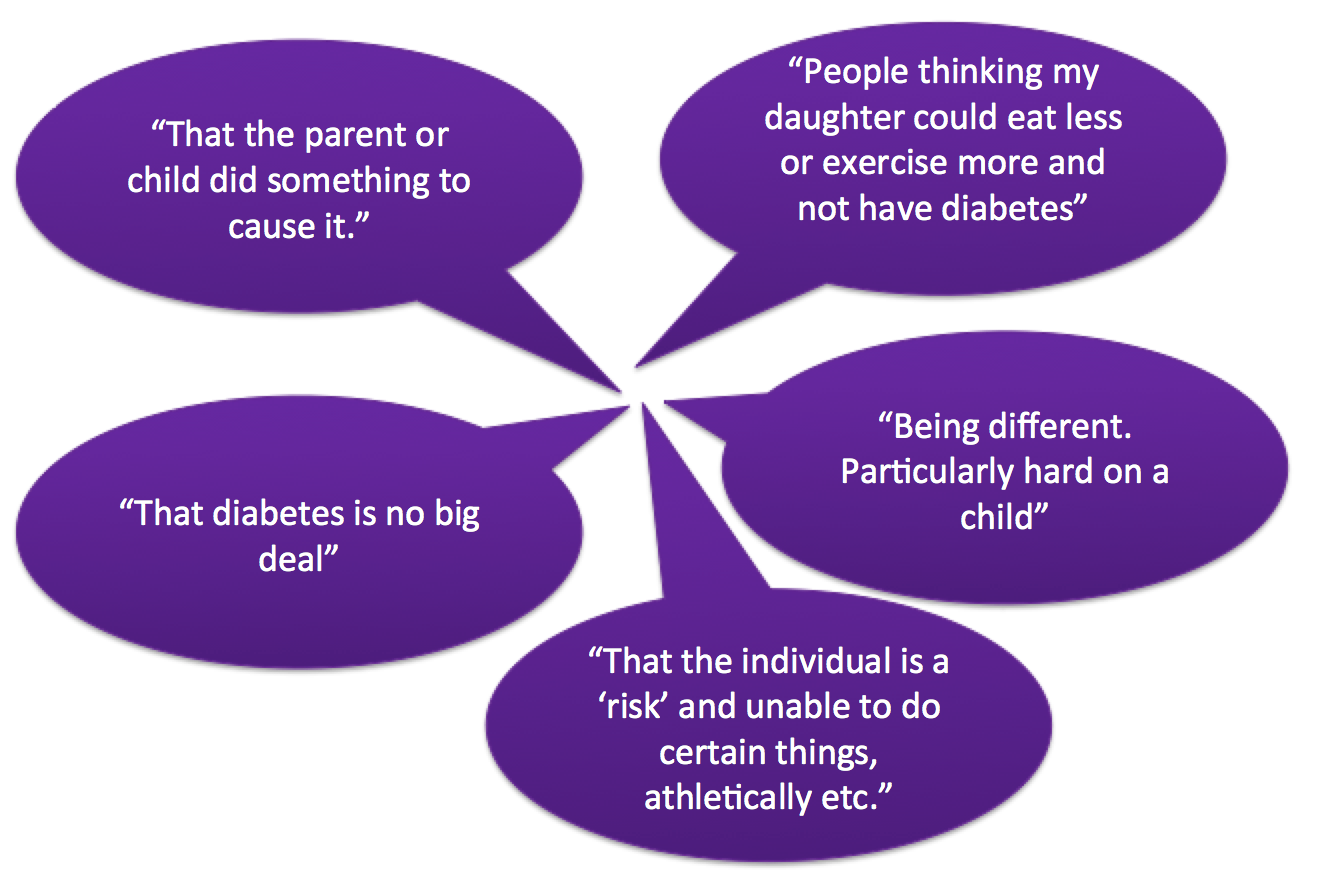
People today know without a doubt that cancer just happens sometimes, that is, it is beyond your control. There is a sense of sympathy given to people with cancer whereas the reaction to telling someone you have diabetes usually results in a barrage of questions and assumptions:
- “Were you overweight? I bet you were overweight.”
- “Did you eat too much candy as a kid? You probably ate really unhealthy”
- “Now you just can’t eat sugar, right? You’ll be fine— it’s not life threatening.”
There is nothing like listening to someone ignorantly ridicule you as to why you were diagnosed with type 1 or even type 2 diabetes and then continue to make assumptions solely based on their misinformation.
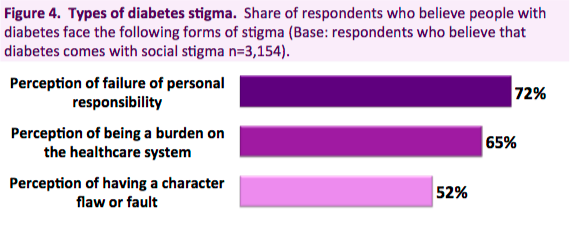
The social stigma — a set of negative beliefs, or mark of disapproval, that society has about a person or group based on a characteristic like a health condition— of diabetes not only misinforms the public, perpetuating ignorance surrounding the disease but can also negatively affect the way people feel about and treat their diabetes.
Unlike people with cancer who are hard to stigmatize, people with diabetes are judged based on their condition from beginning to end. Diagnosis of diabetes means you did something unhealthy (not the case with type 1’s and not always the case in type 2’s). High or low blood sugar means you are a bad diabetic and not doing what you are supposed to (again, not the case). Complications from diabetes (which come mostly from heredity or genetic predisposition) means you did something wrong.
Let’s set the record straight— no one chooses to get diabetes.
The lack of education on diabetes leads people to shame and guilt those struggling with the condition. People see and know the hardship and death tolls of AIDS and Cancer but don’t shame it because the education on the conditions is endless and in plain sight.
It seems that if a person with diabetes has to suffer with the condition but stays alive, it isn’t enough shock value for people to care as opposed to a death from cancer.
Educate & Empower
It will take a large effort on all our parts to reshape and advocate for proper diabetes education. That means type 1’s have to educate on not only type 1 diabetes but also type 2 diabetes as we know it is not just overweight people who get type 2. It starts within our own community first.
Education on statistics, morbidity, management, challenges and complications must come from our mouths and then begin grow on a bigger scale. Can you imagine if, instead of shaming diabetes, we empowered & educated those with diabetes to thrive. What effect would that have in the media or socially?
If diabetes wasn’t so misrepresented, maybe more people would get screened and treated appropriately. And if those millions of undiagnosed cases of diabetes were given a diagnosis, a treatment plan, and a voice, we’d have an even bigger support group.
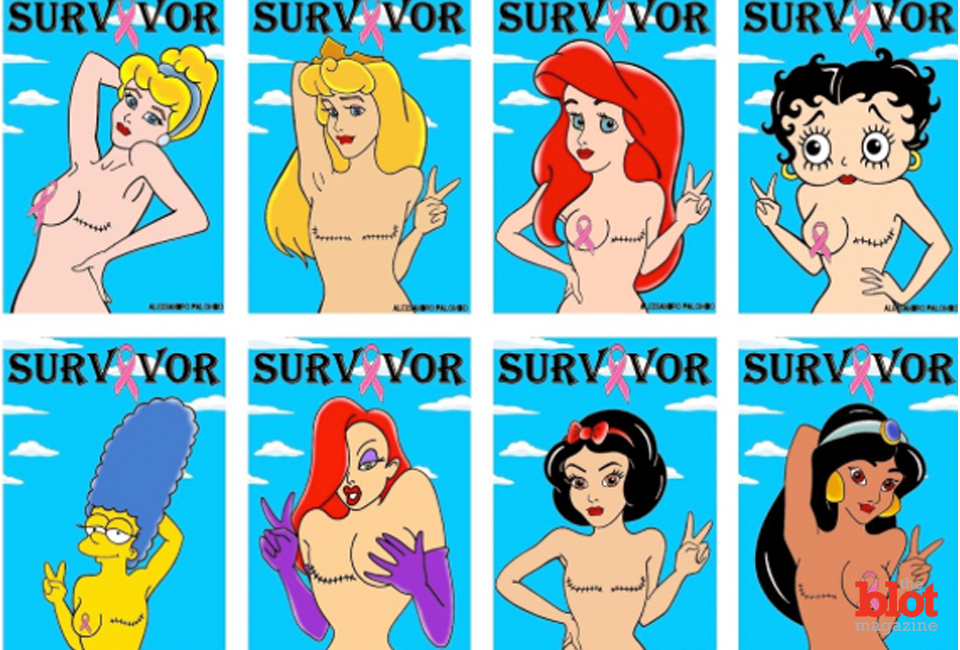
We know the hardships of diabetes but in order to get the attention people with diabetes so desperately need, we need to make the ravages of the disease more visible. There is a thin line between informing and fear-mongering so just making public the good, bad, and ugly parts of living with this condition without fear of shame for “bad sugars” is vital in teaching people about diabetes.
But education alone will not earn diabetes the spotlight because it is not just about what diabetes is— it is about how we, the people with diabetes, talk about it.
Culture
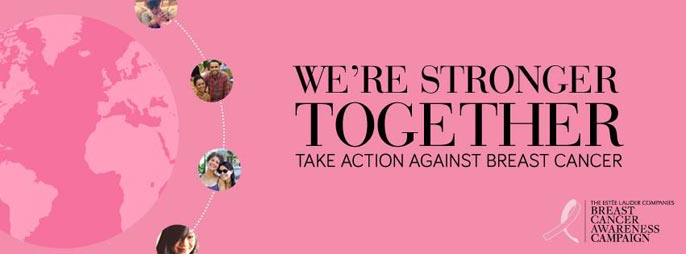
Have you ever noticed there are millions of “diabetics” but not one, single “cancer-ic”?
Why is it that we are diabetic and people with cancer just have cancer? Even people with AIDS are not referred to as the “AIDS guy or girl”. We’ve managed to marginalize our lives within our disease just with the language we use for ourselves and our peers.
Language Inside Our Community
The language we use plays a huge role in creating the labels we wish to avoid. While I used to refuse to believe there was a difference in labeling, there is and it is part of the reason the diabetes culture sucks compared to other conditions like cancer. It is not a matter of being too sensitive, it is a matter of defining a person based on their condition, a condition that already has an ignorant stigma attached to it.
In part, to accept being a “diabetic” is to accept diabetes as the government currently views it— a somewhat important problem…just not an urgent one.
Both AIDS and cancer activists made disease-specific efforts to increase research funding successfully by pressuring the government to increase research funding and treatment options. But that activism started by changing their internal language and imagery first.
Shaming Our Own
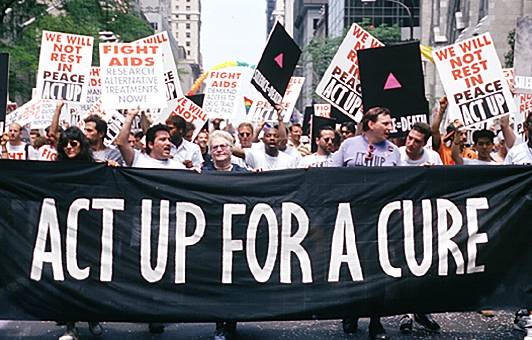
The AIDS advocacy movement was likely the most successful patient uprising in bringing public and government awareness to the epidemic. The difference between AIDS and diabetes– AIDS is communicable.
Even though AIDS was originally (and somewhat ignorantly) bashed for being a gay person’s negligence, they broke the stigma by standing together, endlessly supporting each other and vigilantly fighting for their quality of life. They were dying at an astronomical rate, looked sickly, and used the truth of their condition in the media.
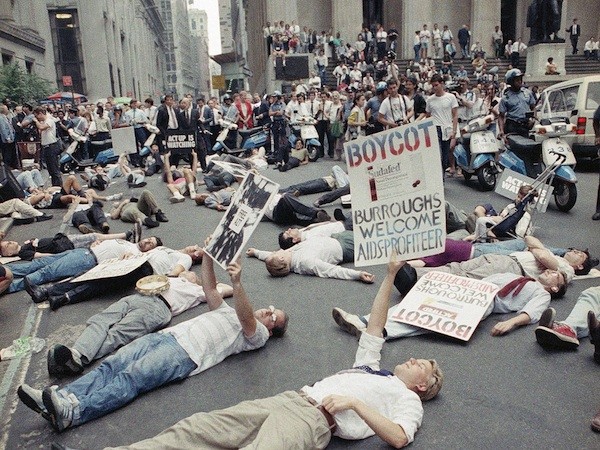 They laid their dying bodies down on Wall Street for the public to see.
They laid their dying bodies down on Wall Street for the public to see.
They weren’t afraid of civil disobedience and getting arrested for their cause. and , most importantly, they formed this ironclad brotherhood of support for each other with no shame or judgement. Their interconnectedness and respect for each other, combined with their fear and anger towards AIDS and it’s lack of proper treatment, paved the way for their community revolution.
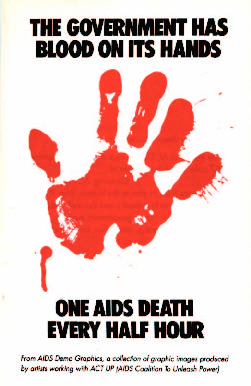 It is important that you see what they did. They broke a huge stigma and supported each other like family to shatter the government’s and public’s negligence, refusing to let people turn a blind eye to their daily reality.
It is important that you see what they did. They broke a huge stigma and supported each other like family to shatter the government’s and public’s negligence, refusing to let people turn a blind eye to their daily reality.
But how can we achieve this grand revolution when we shame our own fellow T1D’s for their A1Cs and food choices? There is so much divide between low carbers, keto dieters, type 1’s and type 2’s that we are not a strong community of people wanting change like people with cancer or AIDS– we are a group of bitter, blood sugar data focused “diabetics” who care more about being right than doing right by your community.
That needs to change if we ever want anything near a cure or better support from the government. How can we expect to lower medication prices if we can’t support each other enough to understand diabetes sucks–both type 1 & 2– and people deal with it differently.
The AIDS movement would’ve never been successful if people with AIDS complained and whined about how they have it worse than people with HIV, yet, that’s exactly what type 1’s do with type 2’s.
Imagery & Association
When you think breast cancer, you think pink ribbon, support, cancer walks, people happy and emotional but never giving up or giving in to their condition. The imagery of women with breast cancer shows strong women maintaining a positive public demeanor while complying with treatments and screenings. People have cancer— they are not cancer.
Both the breast cancer awareness movement and AIDS movement removed the shame and self-consciousness related to having either condition. These movements de-stigmatized and redefined cancer and AIDS in a new social light. Now some words associated with cancer and AIDS are:
- Survivor
- Hope
- Resilient
- Optimistic
- Positive
- Brave
These words are seldom associated or used in the diabetes community. Diabetes seems to be wrongfully illustrated as a disease of shame like depression or mental illness. For that reason, the culture as-is disables diabetes from ever being a high profile, highly supported condition like breast cancer.
Unfortunately, a lot if people associate words like “shame”, “blame”, “burnout”, and “secrecy” with their diabetes. I know it is hard managing diabetes but I also can’t imagine going through cancer or AIDS and if they can maintain that image to support their peers and advocate for their condition, so can we.
Media

From the lack of education, imagery of diabetes often shows an overweight person eating unhealthy. Deaths from diabetes-related complications are brushed off as people aren’t aware that diabetes caused the stroke or heart attack or kidney failure. From the language people with diabetes use, people think it’s just a tedious condition that they allow themselves to be defined by. From the media, diabetes is a health joke.
You would never see media make fun of people with cancer as they do people with diabetes and that is largely because the lack of education, culture, and correct language used in and out of our community.
We Need a Major Rebranding
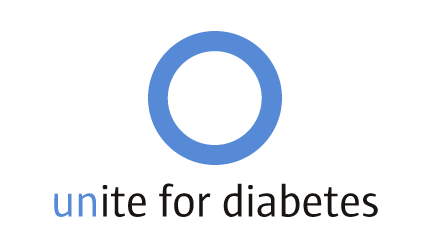
Cancer (specifically breast cancer) and AIDS have developed impressive brand identity and brand awareness through the use of language, a supportive community, and a resilient culture. The diabetes community needs to take notes on the culture and language people with cancer and AIDS live by daily. Hopefully one day there will be a uniform voice from the different associations and foundations that help to better serve the community and raise appropriate funding for research and mainstream education.
Until then, try changing the way you talk about your diabetes. Post on social media, write, and talk to your peers in attempt to debunk diabetes myths and educate. Join diabetes support groups that promote unity and embrace acceptance. Ignorance can be stopped if we actively support each other in the community and rebrand how people see diabetes through our language.
Diabetes is not a shameful disease. Make it your job to show the world just that.
*Open Discussion: Feel free to comment below on how you think we can get diabetes in the social spotlight and what we can do as a community to get the change we need like health care cost reduction, more research funding, and any other aspect of diabetes you feel is neglected! Comment below:

